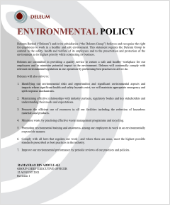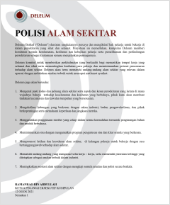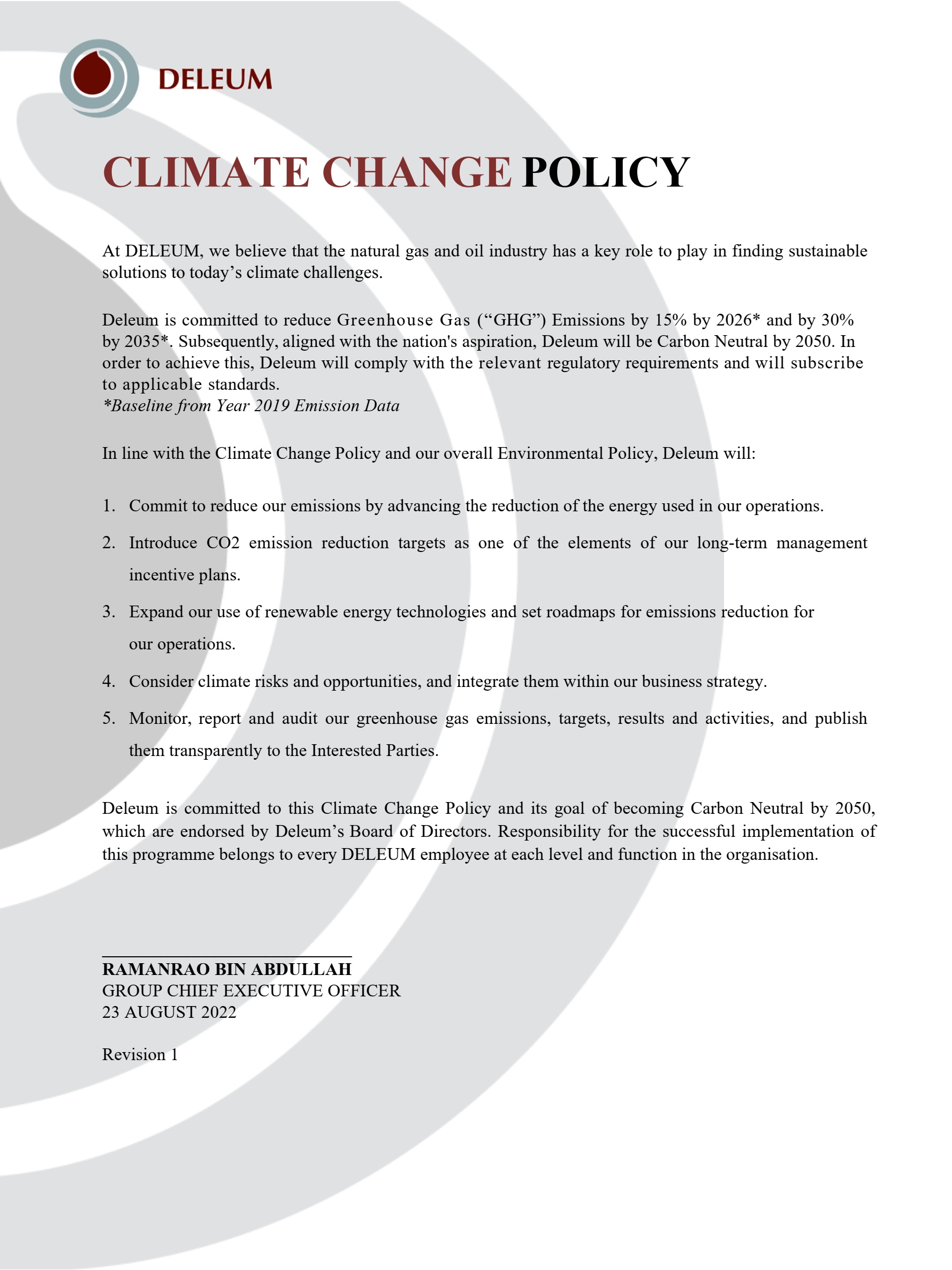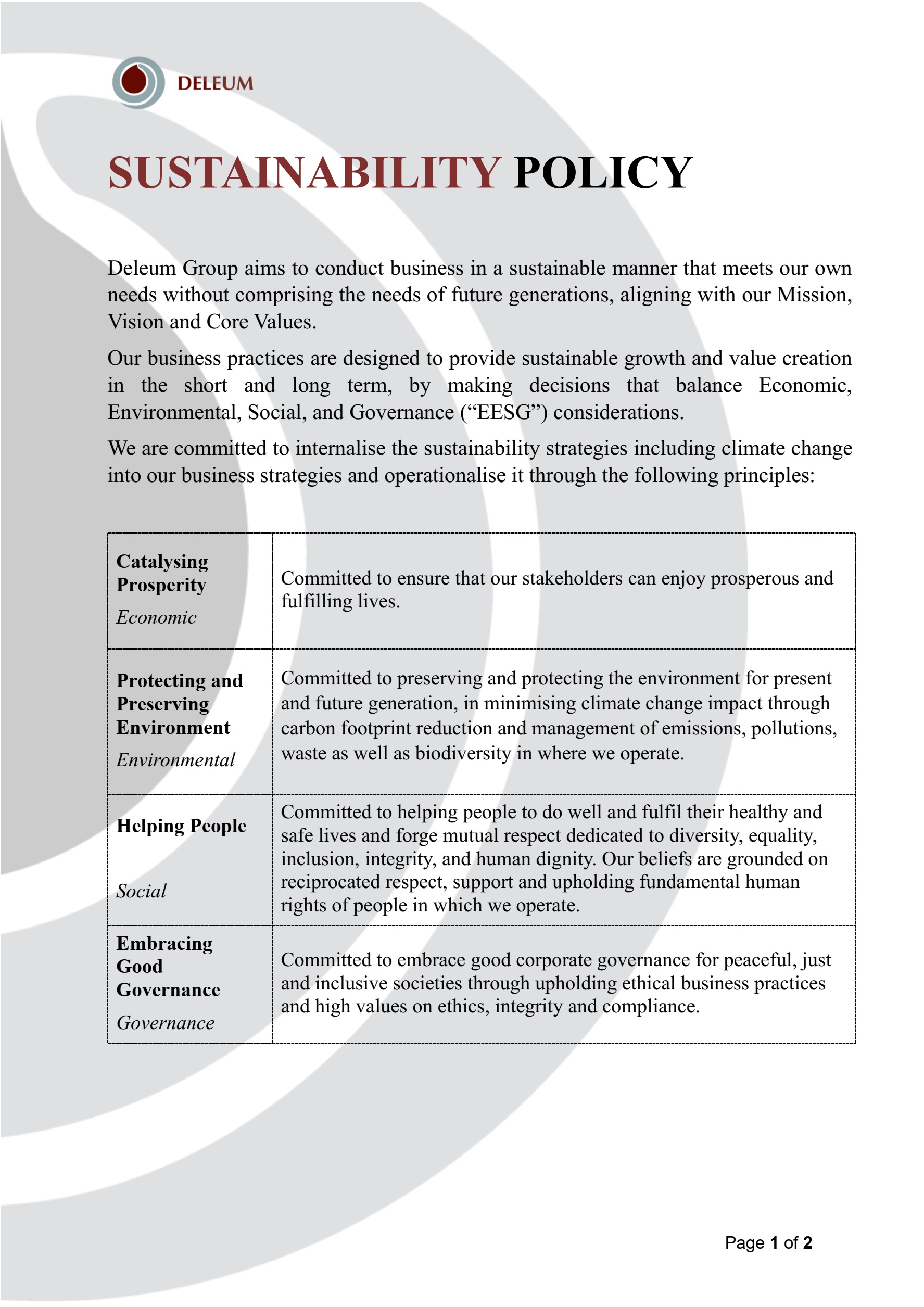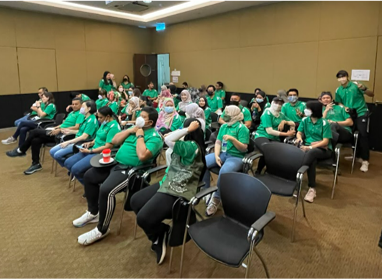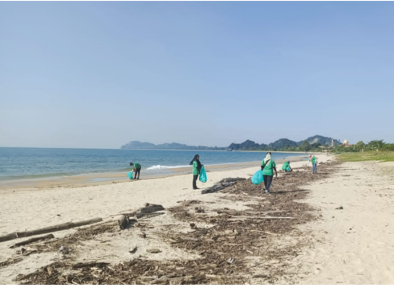.png)
Environmental
Our commitment
Our commitment to environmental sustainability starts at home. As an organisation, we understand that the long-term well-being of society, the well-being of our colleagues, and the continuing success of our own business depend on our commitment to a sustainable environment. Climate change, depletion of natural resources, water scarcity and degradation of air and soil are some of the possible adverse impacts from human activities in ecosystems, societies and economies across the world.
Deleum is aware that the interdependences between economic activity, ecosystems and natural resources present risks and opportunities for our business.
Systematically, Deleum is working to define a reliable and inclusive approach that allows us to prevent and manage environmental impacts caused directly or indirectly through our operations, financial transactions, supply chains and other business activities
Policy
Deleum is focused and committed to protect the environment in all its business activities by adopting best practices based on industry standards and guidelines and ensuring our established policies are being adhered to at all times.
Our environmental policy is established as a precautionary approach towards assessing our environmental challenges, and those of our clients and business partners. It is intended to provide a basis that can protect bottom lines, demonstrate business principles and how to achieve them, facilitate improvements and encourage best practices where possible.
Environmental Management System
The international standard ISO 14001:2015 specifies effective management practices for environmental aspects that organizations can control and influence. Deleum’s Environmental Management System (EMS) is built upon the foundation of our environmental policy and supported by objectives which aim to drive improvement in our environmental performance. Our EMS is ISO 14001 certified by a certification body and helps ensure we meet legal requirements and other environmental requirements to which we subscribe.
Our ISO 14001 certificates represent confirmation that we have established, implemented, maintained, and continue to improve an EMS in conformance with our environmental policy and the ISO 14001:2015 standard. It is regularly evaluated through on-site audits.

Climate Change
Deleum recognises climate change as one of the defining global issues, posing a threat to the environment, the economy, and society as a whole. Being a responsible corporate citizen, we seek to minimise our environmental footprints and committed to operating responsibly, taking into consideration our energy consumption, greenhouse gas emissions, the protection of biodiversity, water consumption, waste management and prevention of pollution.
We believe that climate change risks can and should be addressed while also meeting the growing demand for affordable and secure energy. We recognise the physical, transitional and legal / reputational risks pose by climate change that can have material impacts on returns and long-term value to our business. Our aspiration is to deliver value for our shareholders, customers and wider society, and integrates its long-standing commitment to contribute to sustainable development through a climate change resiliency and environmentally aligned to our business model.
Towards Carbon Neutrality by 2050
Deleum has set short, mid and long-term targets for reduction in emissions using 2019 as our base year:
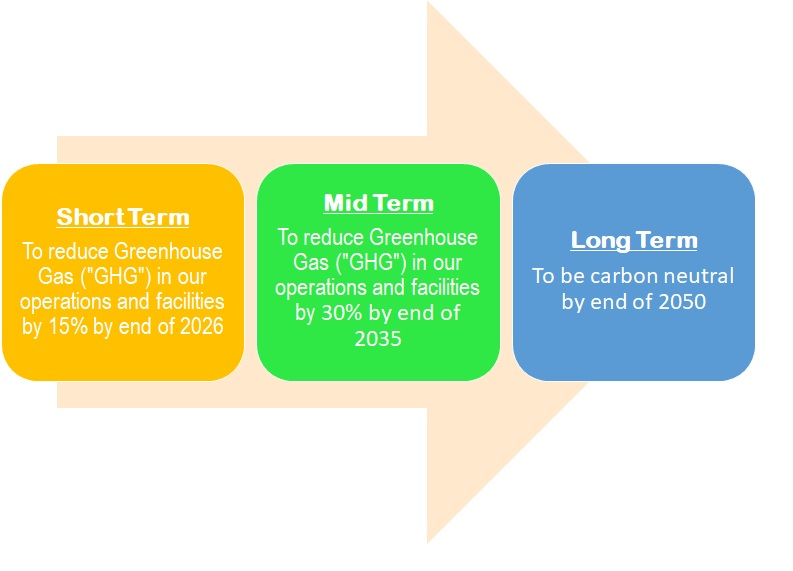
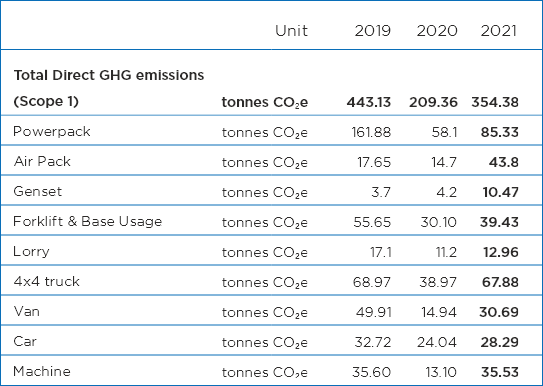
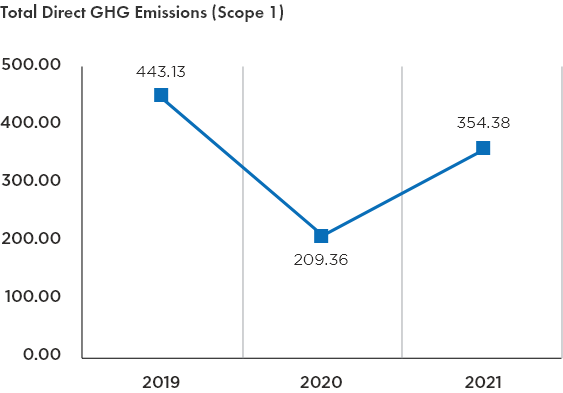

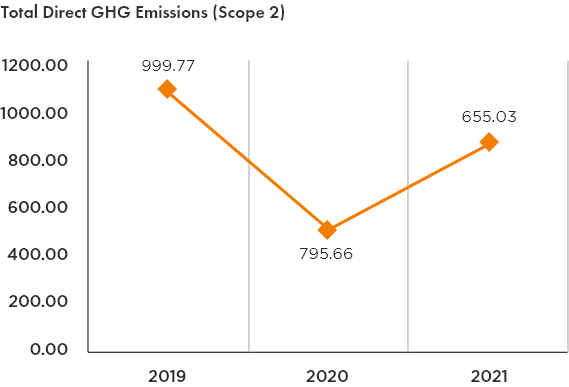

Energy Efficiency
Deleum’s commitment to energy management is driven by both commercial and ESG aspirations. Energy efficiency will support reduced operational expenditures while supporting reductions in carbon and also other GHG emissions.
Our strategies at addressing emissions are primarily centred on managing its energy consumption. The efficient use of energy is an important way in which Deleum can contribute to sustainable development. The Group continues to adopt industry best practices in managing and reducing emissions where possible. Given that carbon emissions that contribute to climate change primarily are derived from energy consumption, Deleum strives to pursue efficiency in consumption of Scope One and Scope Two energy sources, while also explore greater use of renewable energy.
Following are other measures undertaken to reduce energy consumption:
- Replacing existing bulbs with Light Emitting Diode (LED) in some of our offices and facilities.
- Employees are involved in energy-saving practices with positive and motivating energy campaigns implemented around the offices and facilities.
- Exploring renewable energy technology implementation i.e. Solar Panel System Installation at Deleum’s facilities.
Pollution & Resources Use
Whilst our approach is to do no harm; Deleum recognises that our activity may generate pollution to air, water, and land, and consume finite resources that may threaten people, ecosystem services, and the environment.
In response, Deleum develops appropriate management systems to promote the sustainable use of resources, including energy, water, and raw materials. These include various internal awareness initiatives such as internal communication and training courses specific to different employee working areas. Such initiatives emphasise our roles and responsibilities to fight climate change, conserve and promote the efficient use of the natural resources and protect the ecosystem.
Our initiatives to minimise the impact of our operations on the surroundings environment include:
- Environmental Awareness to all Deleum’s Employee and Regulatory Practices i.e. Chemical Health Risk Assessment (CHRA), Environmental Aspect & Impact Assessment (EAIA)
- Responsible Scheduled Waste Management
- Periodical assurance of Environmental Management System by Certification Body at Deleum’s Facilities
- Routine Noise Boundary Programme
- Rain Water Harvesting Project at Deleum’s Facilities
- Recycling programmes and practice 6Rs (Refuse, Reduce, Reuse, Repurpose, Recycle, Rethink) where possible.
As part of our additional efforts to reduce pollution and make a difference in our community, our employees took on Plogging, a fitness trend that combines jogging and other outdoor sports to pick up the litter that spoils our cities and natural spaces.
Waste Management
Deleum's commitment to waste management is to undertake, where practicable, activities in a best practice sustainable manner. Deleum is committed to:
- avoiding & reducing waste
- reusing & recycling waste
- waste management practices that protect the environment and community
- incorporating risk management and workplace health and safety best practice in waste management
- fostering an organisational culture that promotes waste management and resource recovery best practice
- engaging stakeholders and encouraging waste management behaviour
All hazardous waste are managed by our own Certified Schedule Waste Competent Person registered and recognised by the Department of Environment. This commitment to protect the environment is in compliance with Environmental Quality Act 1974 and to maintain the certification ISO 14001 : 2015 which guide all works performed.
Waste Lifecycle


Biodiversity
As a responsible corporate entity in the oil and gas industry, Deleum is aware of the significant role that our business plays in environmental conservation. Though biodiversity may not be directly material to Deleum’s operations, the Group believes it can and should contribute to biodiversity conservation and preservation.
Biodiversity preservation goes beyond the conservation of flora and fauna but is vital for food security, tourism, safeguarding traditional way of life and livelihood and maintaining healthy eco-systems. This includes its ongoing efforts to combat climate change and to reduce environmental footprint.
To the best of its knowledge, Deleum does not operate in locations or locations adjacent to sites deemed to be high in biodiversity value, or sites which contain flora and fauna species deemed to be on the International Union for Conservation of Nature (“IUCN”) Red List. The Group will continue to monitor the environmental impact of its business presence and operations and is committed towards maintaining net positive or at least neutral biodiversity impact.
Deleum aspires to explore possibilities working with non-governmental organisations (“NGOs”) and other bodies towards providing support for their environmental related activities. Since 2019, Deleum has collaborated with Malaysian Natural Society to support its' mangrove rehabilitation project at the ecoCare Environmental Education Centre (EEC), Kerteh, Terengganu. Our initiatives include:
- Mangrove Education Talk for students of SMK Kampung Baru Kerteh (Year: 2019)
- Mangrove Trekking (Year: 2019,2021)
- Mangrove Seeding Mangrove Planting (Year: 2019,2021)
- Jetty Refurbishment (Year: 2021)

